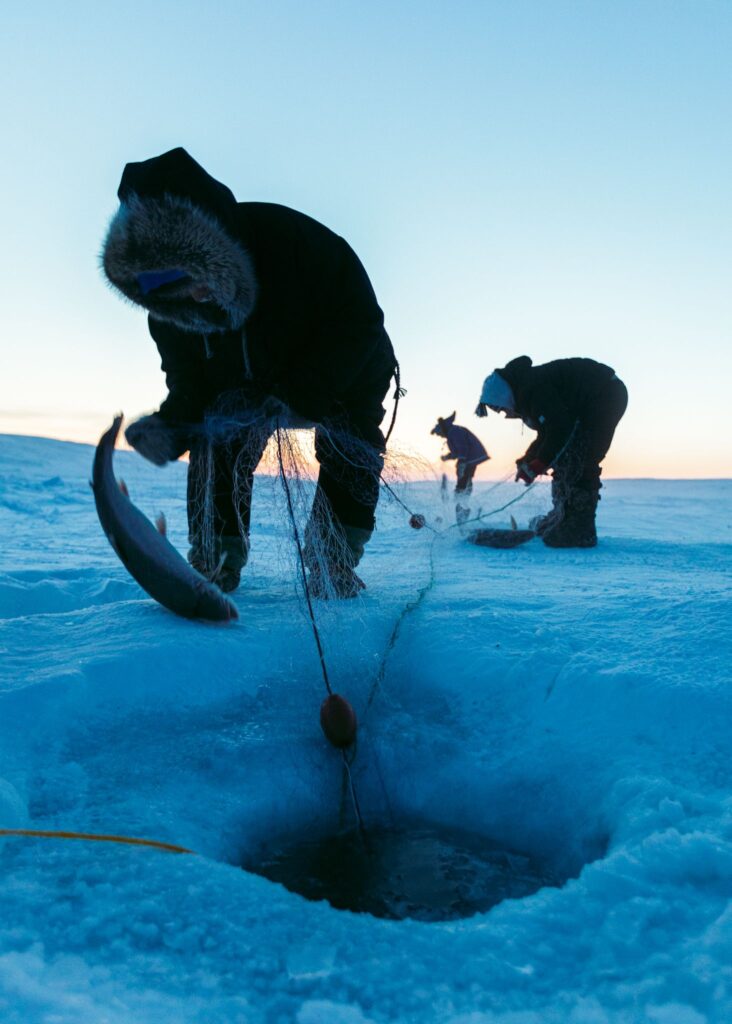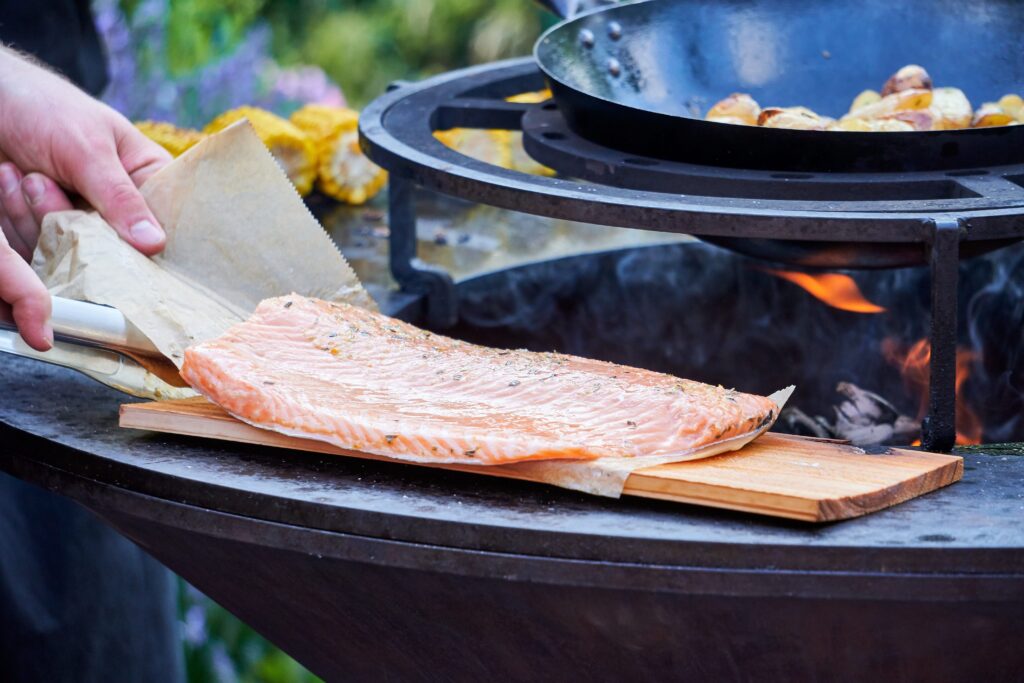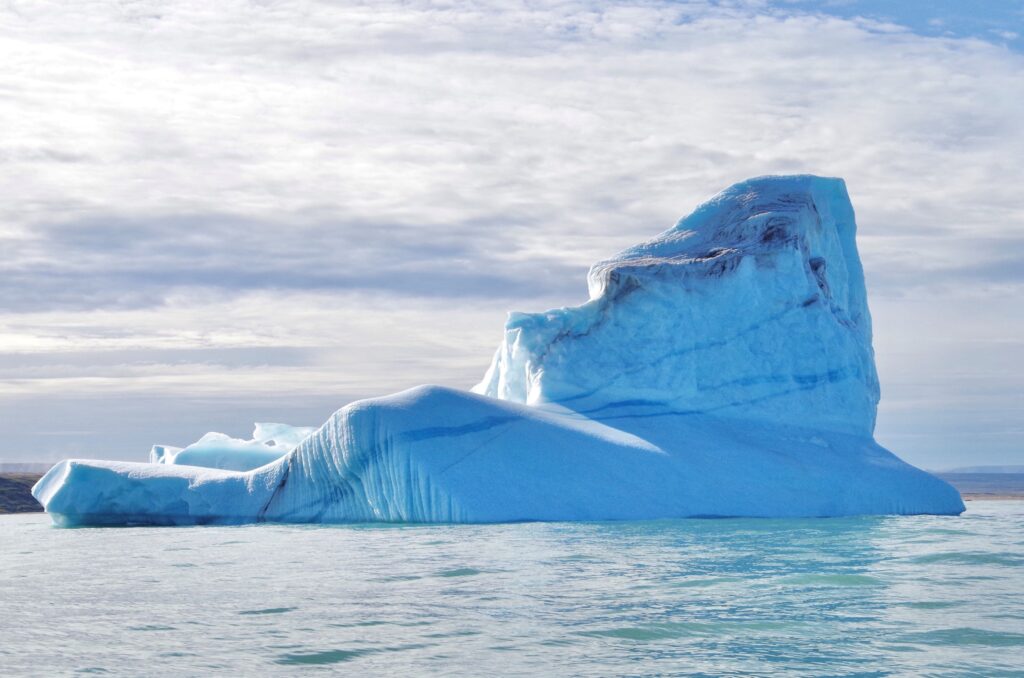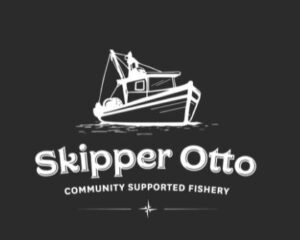Darryl Siusangnark makes his living off the Arctic coast around Naujaat in Nunavut. Along with other Inuit fishers in his community, in the heart of the dark winter season he braves frigid weather conditions and travels across the tundra by snowmobile to catch fish from below the ice of frozen lakes using an auger and gillnets. His premium winter catch is wild Arctic char.
Darryl started fishing with his father in early childhood and has been fishing on his own since he was 18. He is a key provider of fish for his community, supplying food for elders, food-insecure households, family, friends, community feasts, and commercial sales.

Project Nunavut is an Iqaluit-based social enterprise that creates economic opportunities for fishing families that allow them to persist in a traditional way of life in their communities. Through its program Lake to Plate the organization helps empower fishermen like Darryl Siusangnark to sell their wild-caught Arctic char to food businesses in southern Canada for fair prices and, thereby, make a sustainable income for themselves, their families, and their communities.
Recently, Project Nunavut joined forces with Skipper Otto, Canada’s first Community Supported Fishery, to bring Arctic char to consumers across Canada. While the Government of Canada issues commercial licenses to allow for small-scale, sustainable inshore fisheries for Arctic char across Nunavut, to date it has been difficult for fishermen in remote Arctic communities to connect and build relationships with potential partners in the South.
Skipper Otto has been assisting traditional fishing families based in British Columbia achieve a sustainable income since 2008 but this is the first expansion beyond the West Coast. Skipper Otto founder Sonia Strobel learned about the Lake to Plate initiative while reading an issue of Edible Toronto and was struck by the similarities between the missions of her organization and theirs: to create economic opportunities for fishing families that allow them to persist in a traditional way of life in their communities. Strobel connected with Jeremy Davison of Project Nunavut and confirmed that they were natural allies. The partnership with Skipper Otto connects the Nunavut fishermen with a customer base that stretches from BC to Ontario. By selling their fish to southern consumers at fair prices, Inuit fishermen are able to make a living doing what they love, using knowledge passed down from their elders to thrive on the land and provide for their families and communities.

Artisanally caught Arctic char from Nunavut’s frozen winter lakes is wild, sustainable, and nutritious. The species is a close relative to both salmon and trout, and is often described as a cross between the two. Its appearance and fat content is similar to salmon, but, because of its environment, Arctic char has a flavour that is uniquely its own. Typically, Arctic char tastes milder than salmon but richer than trout. It can be cooked in the same way as salmon.
Arctic char can be lacustrine (living in lakes), riverine (living in rivers), or anadromous (living in both saltwater and freshwater). The Arctic char caught by Darryl Siusangnark are anadromous and, every fall, migrate from the Arctic ocean up rivers into lakes where they spend the coldest months and where they are traditionally ice-fished under the lights of the aqsarniit (Inuktitut for Aurora Borealis, or Northern Lights). After being caught, the fish quickly freeze in the ambient temperature, which hovers around -40˚C during the depths of winter. As a result, until it reaches customer, the fish remains as fresh as the moment it was caught.

Following a successful fishing trip, Darryl’s Arctic char travel by snowmobile to Naujaat and, from there, on existing passenger and supply flights to Winnipeg. From Winnipeg, they hitch a ride on transport trucks to Skipper Otto’s home base in Vancouver. The alliance has already kicked into high gear — in one week alone, Skipper Otto handled 800 lbs of frozen char caught by Darryl Siusangnark and 1000 lbs from another Inuit fisher, Simon Qamanirq.
To learn more about supporting sustainable family fisheries in Canada visit www.skipperotto.com.


